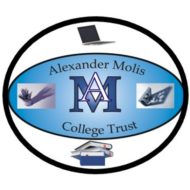Trust Policies – 2024
- For requests below $9,000 for the year, award the full amount. Of course, if there are many students in this category, we would have to reduce the amount to stay within our yearly limit.
- For requests above $9,000 for the year, we will only be able award a maximum of $9,000 per student per year. Of course, if there are many students in this category, we would have to reduce the amount to stay within our yearly limit.
- Exceed the $9,000 limit on an as-case basis, considering both the trust assets and yearly limit. The Trustees will review and vote on requests individually.
- For students who choose to commute to college rather than stay on campus, we will reimburse for mileage to and from college. We will use the 2024 IRS mileage reimbursement rate, which is 67 cents per mile.
- Letters to individuals requesting funds before any semester should stress that the awards are given with the expectation that the student will get passing grades (at least a 2.0). Should the student not achieve passing grades, then future awards for that student will not be made before the semester, but rather will be made only after receiving notice that the student passed. If passing grades are not achieved, the Trust will make no award for that semester.
- For any student who requests funds for a non-college degree program, the Trustees shall decide on what amount to award, based on the current Trust financial condition, and the total number and amount of other funds being requested. However, because the original intent of the Trust was for college degree programs, the Trustees reserve the right to award less than the amounts listed above for any non-college degree program, or perhaps, make no award at all.
- Letters to applicants should note that the Trust may not be able to cover an applicant’s costs, and that the Trustees will consider past awards made when deciding on whether to make future awards. This will cover situations where a student decides to change programs midstream and cannot transfer credits to the new program.
Eligible Expenses
Awards are applied to tuition and academic fees first. The following expenses also may be paid for with award proceeds.
1. For students who choose to commute to college rather than stay on campus, we will reimburse for mileage to and from college. We will use the 2024 IRS mileage reimbursement rate, which is 67 cents per mile.
2. The Trust will also reimburse students up to $1,000 for a laptop computer, should it be required by the college.
Requirements for reimbursement
Awards are contingent upon academic performance. If individuals request funds before any semester, awards are given with the expectation that the student will get passing grades (at least a 2.0).
However, should the student not achieve passing grades, then future awards for that student will not be made before the semester, but rather will be made only after receiving notice that the student passed. If passing grades are not achieved, the Trust will make no award for that semester.
What About Non-College Education Programs?
Uncle Al’s original intent of the Trust was for provide awards for college degree programs. However, we soon had requests for assistance with other non-college degreed education programs . The Trustees discussed these requests at length. The Trust document states the following in Article III, repeated below.
The purpose of this Trust is to provide funds for members of Donor Alexander Molis’s family to pursue college or university degrees…. Funds may be provided for associate degrees, bachelor degrees, masters degrees or doctorate degrees.
However, after much discussion, the Trustees thought that it reasonable to consider non-degreed education programs. We think that Uncle Al would agree with us, so long as family members were pursuing an education that would aid them in life. Further, we realized that not every individual would necessarily want to go to college.
As such, we decided to consider non-degreed program requests. Decisions will be made by the Trustees on a case-by-case basis. For any student who requests funds for a non-college degree program, the Trustees shall decide on what amount to award, based on the current Trust financial condition, and the total number and amount of other funds being requested.
What if a Student decides to Change Majors?
The Trustees recognize that many students may decide to change majors during their college experience. This is not uncommon, and, in most cases, will not result in extending the time required to obtain a degree. However, if a change in fields results a significant extension in the time to complete the degree program, the Trustees will consider past awards made when deciding on whether to make future awards. This will cover situations where a student decides to change programs midstream, and cannot transfer credits to the new program.
However, we will not provide additional funds for a situation where a student completes a degree in one field, then decides to pursue a degree in an unrelated field.
Age and Other Award Limits
As the family expands, more and more students are expected to share the assets of the Trust. It was Uncle Al’s intention was to assist young family members in pursuing a college degree. This would allow them to kick-start their life and get them on a career path that they might not be able to otherwise afford. In the past, we have provided awards to older family members pursuing advanced degrees.
However, several years back, the Trustees made some decisions that we thought were reasonable, so as to keep the focus on providing awards to younger family members. As such, the following award rules apply.
- Assistance is limited to individuals pursuing degrees up to the age of 35.
- No assistance will be provided for second degree in an unrelated field.
- Assistance for advanced degrees may be provided so long as the degree is in their undergraduate field of study or is relevant to their undergraduate field. One example of this would be obtaining an MBA degree.
- Limit assistance to a maximum of $500 per year for those individuals who chose to pursue Continuing Education Credits (CEC) to supplement their education in their present field. However, after 35 years of age, no awards for CEC courses will be made.

